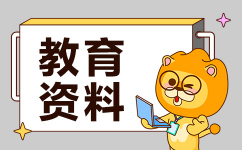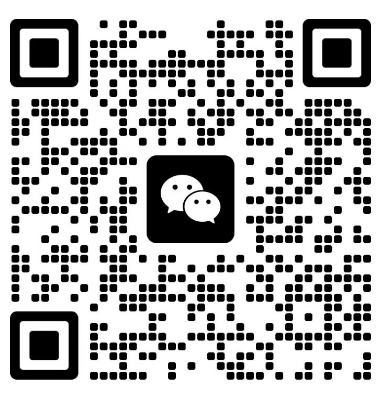小编今天为您带来了小学五年级英语下册语法4篇,希望能对您的学习有帮助。
小学五年级英语下册语法1
一、词语
1、名词
这里强调两点:不可数名词都默认为单数,所以总是用is名词复数如何加后缀:各种不同情况变化方法例词
一般情况:1)直接加-s
book-books bag-bags cat-cats bed-beds以s.x.sh.ch
2)结尾加-es
bus-buses box-boxes brush-brushes
watch-watches peach—peaches glass--glasses
3)以“辅音字母+y”结尾变y为i,再加-es
family-families study--studies
4)以“f或fe”结尾,变f或fe为v,再加-es
knife-knives
不规则名词复数
man-men woman-women policeman-policemen policewoman-policewomen mouse-mice foot-feet child-children fish-fish Chinese-Chinese
英语下册知识点总结
一、重点短语讲解
1.play with和…一起玩,play with sb.(某人)和…一起玩,play with sth.(某物)玩某物
eg.Lucy and Lily are playing with their mother.
Lucy and Lily are playing with their doll.
2.a lot of很多a lot of=lots of+可数名词复数或不可数名词
eg.同义句转换There are a lot of apples on the table.
=There are apples on the table.
3.how often多久一次,how often是一个特殊疑问词,就频率提问。英语表示频率的词:一次:once两次:twice特殊其他次数:基数词+times构成例如:8次eight times
e.g.--How often do you go to the library?
I go to the library once a week.(注:如就划线部分提问,应用特殊疑问词how often)
4.how many多少,how many/much就数量提问.how many+可数名词;how much+不可数名词
e.g.--How many boys are there in your class?
There are 40 boys in my class.
How much water is there in the bottle?There is a little water in the bottle.
5.be good at擅长at后可加名词或动词。如加动词,应用动名词形式即:v+ing e.g.I am good at English.
6.be interested in对….感兴趣in后可加名词或动词。如加动词,动词应用动名词形式即:v+ing e.g.I am interested in English.
7.play the violin拉小提琴,乐器前加定冠词the
8.listen to music听音乐,听…,用listen to
1)听音乐前不加定冠词the;2)听收音机前,要加定冠词the:listen to the radio.
9.come from来自,come from=be from,I come from China.=I am from China.
易错点:Where are you come from?(错误)Where do you come from?(正确)
10.play football踢足球{球类名词前不加冠词}
11.be famous for因…闻名
如:Are you ready?—你准备好了吗?—Yes,I am.—是的,我准备好了。No,I’m not.我没准备好。)
(2)实义动词型:句中的谓语动词为实义动词(也叫行为动词):a.肯定句中,只出现实义动词,如:I get up in the morning.我早晨起床。
b.否定句中,要在实义动词前面加do(does)+not,do(does)作助动词,本身无意义,常与not缩写成don't(doesn't),
如:I don't like vegetables.我不喜欢蔬菜。
c.一般疑问句,要在句子开头加助动词Do(does),句尾用问号,简略答语用Yes,主语+do(does).或No,主语+do(does)+not.如:—Do you like oranges?—你喜欢桔子吗?—Yes,I do.—是的,我喜欢。
3一般现在时的用法
1)经常性或习惯性的动作,常与表示频繁度的时间状语连用。时间状语:every…,sometimes,
Eg:I leave home for school at 7 every morning.
2)客观真理,客观存在,科学事实。
The earth moves around the sun.
Shanghai lies in the east of China.
3)表示格言或警句中。Pride goes before a fall.骄者必败。
注意:此用法如果出现在宾语从句中,即使主句是过去时,从句谓语也要用一般现在时。
例:Columbus proved that the earth is round.
3)现在时刻的状态、能力、性格、个性。
I don't want so much.
Ann Wang writes good English,but does not speak well.
B)一般将来时
1.概念:表示将要发生的动作或存在的状态及打算、计划或准备做某事。句中一般有以下时间状语:tomorrow,next day(week,month,year…),soon,the day after tomorrow(后天)等。
2.基本结构:1.be going to+do.2.will+do
3.否定句:在be动词后面加not或在will后面加not成won’t。例如:I’m going to have a picnic this afternoon.否定句为:I am not going to have a picnic this afternoon.
4一般疑问句:be或will提到句首,some改为any,改为or,第一二人称互换。例如:We are going to go on an outgoing this weekend.Are you going to go on an outgoing this weekend?
四、对划线部分提问。
一般情况,一般将来时的对划线部分有三种情况
1.问人。Who
例如:I’m going to New York soon.Who’s going to New York soon?
2.问干什么。What…do.
例如:My father is going to watch a race with me this afternoon.What is your father going to do with you this afternoon?
3.问什么时候。When.
例如:She’s going to go to bed at nine.When is she going to bed?
四、同义句:be going to=will
Eg:I am going to go swimming tomorrow(明天).=I will go swimming tomorrow.
五、be going to和will的区别
be going to和will的用法虽然都表示将来发生动作或情况,但它们的用法是有区别的。
1.be going to主要用于:
(1)、表示事先经过考虑、安排好打算要做的事情。What are you going to do today?今天你们打算做什么?Dad and I going to see a Beijing opera this afternoon.今天下午我和爸爸打算去看京剧。I am going to play the violin.我打算拉小提琴。She’s going to play the piano.她打算弹钢琴。
(2)、表示根据目前某种迹象判断,某事非常有可能发生。
e.g.Look!There come the dark clouds.It is going to rain.
I am afraid I am going to have a cold.恐怕我要患重感冒。
2.will主要用于以下几个方面:
语法知识
1.同义词:autumn(英)—fall(美)
对应词:wake up—sleep go to bed—get up
2.三单:say—says ask—asks come—comes
3.同义句:
What’s your favourite season?(你最喜爱的季节是什么?)
----Which season do you like best?(你最哪个季节?)
4.表示天气的介词。当表示某地某个季节的天气情况时,要把季节放在前面,地点放在后面。其结构为:What’s the weather like in季节in地点?
第三单元
主要语法点:
1、关于月份:(1)五月May,六月June,七月July,没有简写形式。九月September的简写形式是前四个字母加点Sept.其他八个月的简写形式是前三个字母加点。(2)无论是完全形式还是简写形式,表示12个月的单词的第一个字母都要大写。
2、关于基数词变序数词。
(1)一般情况下,直接在基数词后面加th.(one,two,three除外)。one—first,two—second,three—third.
(2)以ve结尾的基数词,变ve为f,再加th.如:five—fifth,twelve—twelfth.
(3)以t结尾的基数词,直接加h。如eight—eighth.
(4)以不发音的字母e结尾的,丢掉不发音的字母e,再加th.如nine—ninth.
(5)以y结尾的整十数,在变为序数词时,将y变为ie,再加th.如twenty—twentieth.
(6)20以上的两位数,变为序数词时,十位数不变,只将个位上的数变为序数词。如:twenty-one--—--twenty-first,twenty-two——twenty-second,thirty-four——thirty-fourth
(7)序数词的简写形式为表示该词的阿拉伯数字加上该单词的最后两个字母,最后两个字母要变成上标格式。如:first—1st,second—2nd,third—3rd,fourth—4th.twentieth—20th
3.回答When is your birthday?这个问题,如果只说明生日在几月份,在月份前用in.如My birthday is in July.如果要具体说明生日是在几月几日,则要把in去掉,直接用is,或者在is后加on。如My birthday is June 9th.或My birthday is on June 9th.
4.注意区分两个句子:
What day is it today?今天星期几?
What’s the date today?今天是几月几日?
5.根据要求写单词:
make(现在分词)---making.send(现在分词)---sending.
6.句子:
How many birthdays are in October?有几个人的生日在十月?
There are 3.
7.My birthday is in February.
(变为一般疑问句)---Is your birthday in February?
8.Does she have a computer?她有计算机吗?当第三人称单数和句子中出现了does时,其他动词必须使用原型。
9、读序数词时,前面一定要加the.如October 1st.
读作October the first.
10、同义句:
Who has a birthday in October?===Whose birthday is in October?
第四单元
知识点:
1、在电话中介绍自己时,可以用“It’s…”或者‘This is….’。但是不能用“I am…”或者“My name is…”
2.在电话中表另一个人接电话时,应该说:“Can I speak to…?”
3、告诉别人接电话时,说:There is a call for you.
I am a student.我是一名学生。
b.否定句中,要在be后面加not,如:
She isn't a teacher.她不是教师。
c.一般疑问句,要将be放在句子开头(注意句首字母大写),句尾用问号,答语用Yes,主语+be.或No,主语+be+not.如:
—Are you ready?—你准备好了吗?
—Yes,I am.—是的,我准备好了。
(—No,I'm not.—不,我没准备好。)
(2)实义动词型:句中的谓语动词为实义动词(也叫行为动词):
a.肯定句中,只出现实义动词,如:
I get up in the morning.我早晨起床。
b.否定句中,要在实义动词前面加do(does)+not,do(does)作助动词,本身无意义,常与not缩写成don't(doesn't),如:
I don't like vegetables.我不喜欢蔬菜。
c.一般疑问句,要在句子开头加助动词Do(does),句尾用问号,简略答语用Yes,主语+do(does).或No,主语+do(does)+not.如:
—Do you like oranges?—你喜欢桔子吗?
—Yes,I do.—是的,我喜欢。
(—No,I don't.—不,我不喜欢。)
3.一般现在时的用法
1)经常性或习惯性的动作,常与表示频腮度的时间状语连用。
时间状语:every…,sometimes,at…,on Sunday
I leave home for school at7 every morning.
2)客观真理,客观存在,科学事实。
The earth moves around thesun.
Shanghai lies in the eastof China.
3)表示格言或警句中。
Pride goes before a fall.骄者必败。
注意:此用法如果出现在宾语从句中,即使主句是过去时,从句谓语也要用一般现在时。
例:Columbusproved that the earth is round..
4)现在时刻的状态、能力、性格、个性。
I don't want so much.
Ann Wang writes goodEnglish but does not speak well.
比较:NowI put the sugar in the cup.
I am doing my homework now.
一般将来时
一、概念:表示将要发生的动作或存在的状态及打算、计划或准备做某事。
句中一般有以下时间状语:tomorrow,next day(week,month,year…),soon,
the day aftertomorrow(后天)等。
二、基本结构:①be going to+do;②will+do.
三、否定句:在be动词(am,is,are)后加not或will后加not成won’t。
例如:I’m going to have a picnicthis afternoon.→I’m not going to have a picnic this afternoon.
四、一般疑问句:be或will提到句首,some改为any,and改为or,第一二人称互换。

